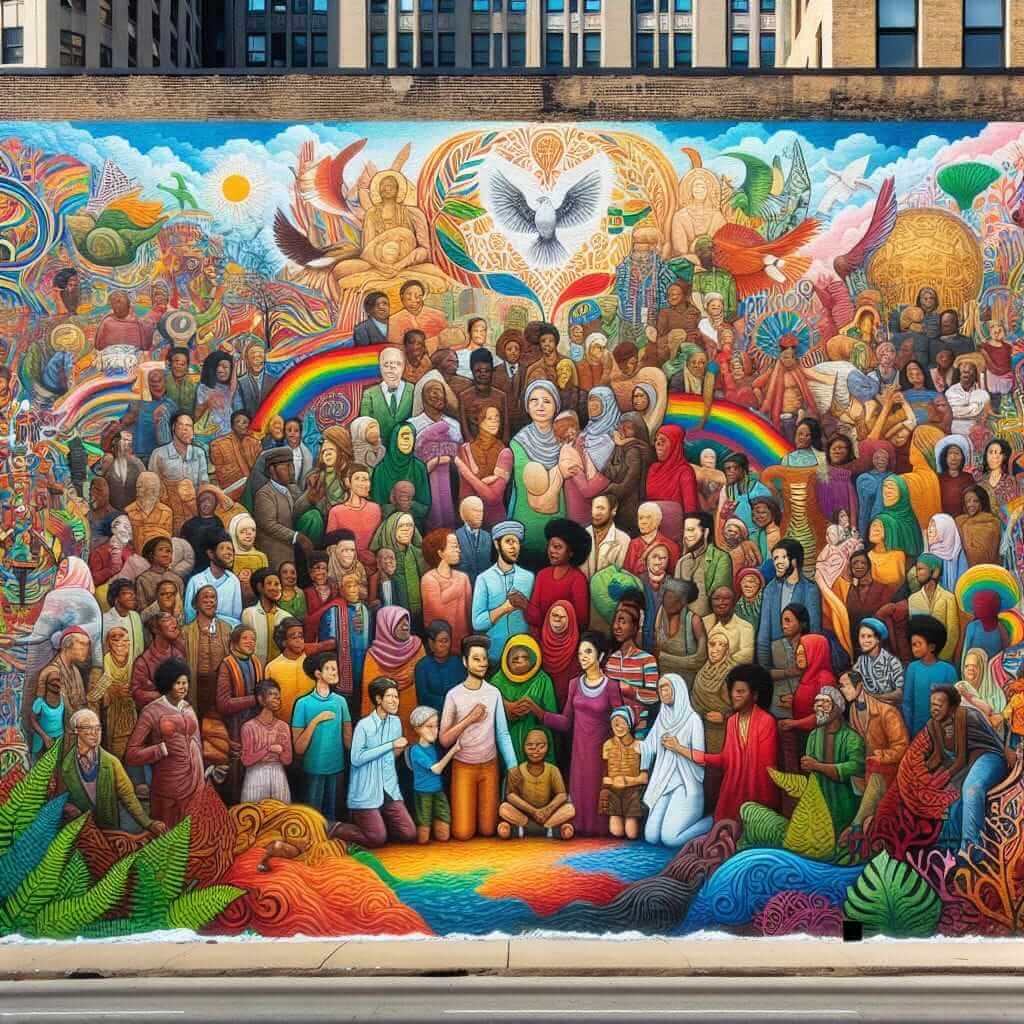The intersection of art and public spaces forms a fascinating area of study within urban planning and sociology. “Public art,” a term encompassing sculptures, murals, installations, and even performance art in public settings, plays a pivotal role in shaping community identity. Its presence, often integrated into the fabric of daily life, can spark dialogue, inspire reflection, and foster a sense of belonging. Understanding its impact is crucial for anyone interested in the dynamics of community building and cultural expression. This topic frequently surfaces in IELTS Writing Task 2, prompting test-takers to analyze the multifaceted relationship between art and community.
Let’s consider some potential IELTS Writing Task 2 questions related to this theme:
- “Some people argue that public art serves no practical purpose and is a waste of public funds. To what extent do you agree or disagree?”
- “Public art should reflect the history and culture of the local community. Discuss this view and give your own opinion.”
- “In many cities, modern art installations are becoming increasingly common in public spaces. Do the advantages of this trend outweigh the disadvantages?”
Essay Breakdown: Public Art and Local Culture
We will now delve deeper into the second question:
“Public art should reflect the history and culture of the local community. Discuss this view and give your own opinion.”
Analyzing the Question
This question requires a balanced discussion, exploring both sides of the argument before presenting a clear personal opinion.
- Key Concepts:
- Public art: This encompasses a wide range of artistic expressions displayed in public spaces.
- History and culture: These are fundamental aspects of a community’s identity, shaping its values, traditions, and perspectives.
- Reflect: The question asks whether public art should act as a mirror, representing the existing history and culture of a community.
Model Essay
Public art, with its ability to transform public spaces and engage the community, often becomes a point of debate. A common argument posits that such art should primarily serve as a reflection of local history and culture. While I agree that public art can play a significant role in honoring heritage, I believe it should not be limited to this function alone.
On the one hand, public art deeply rooted in local history and culture can be immensely valuable. Firstly, it acts as a powerful educational tool, reminding residents of their shared past and fostering a sense of communal identity. For example, murals depicting historical events or sculptures of local heroes can instil a sense of pride and belonging within the community. Secondly, it can attract tourism and boost the local economy. Visitors are often drawn to places that showcase unique cultural heritage.
However, limiting public art to purely historical or cultural representations can be restrictive. Public art also has the potential to challenge perspectives, spark dialogue, and inspire creativity. Modern art installations, abstract sculptures, or even performance art pieces can introduce new ideas and aesthetic experiences to a community. This exposure to diverse forms of art can be enriching and thought-provoking, encouraging residents to engage with contemporary issues and global artistic trends. Moreover, commissioning artists from diverse backgrounds to create public art can promote inclusivity and represent the multifaceted nature of modern societies.
In conclusion, while acknowledging the importance of honoring local history and culture through public art, I believe that its potential extends far beyond this single function. Public art should be a dynamic force, celebrating heritage while simultaneously embracing innovation, encouraging dialogue, and reflecting the evolving identity of a community.
(Word Count: 288 words)

Writing Tips and Vocabulary
Key Considerations:
- Provide a Balanced View: Discuss both sides of the argument before presenting your opinion.
- Use Examples: Illustrate your points with relevant examples to strengthen your arguments.
- Clear Opinion: State your opinion clearly and support it with strong reasoning.
- Cohesive Structure: Ensure a logical flow of ideas using cohesive devices (linking words).
Vocabulary Enhancement:
Here are some useful words and phrases to enhance your writing on this topic:
- Evoke: (verb) – to bring a feeling, memory, or image into your mind.
- Instil: (verb) – to gradually establish an idea or attitude in a person’s mind.
- Heritage: (noun) – features belonging to the culture of a particular society, such as traditions, languages, or buildings, that were created in the past and still have historical importance.
- Aesthetic: (adjective) – concerned with beauty or the appreciation of beauty.
- Abstract: (adjective) – existing in thought or as an idea but not having a physical or concrete existence.
- Commission: (verb) – to formally ask someone to produce a work of art for you.
- Multifaceted: (adjective) – having many different parts or aspects.
Conclusion
This essay explores the complex relationship between public art and community identity, providing a framework for approaching similar IELTS Writing Task 2 questions. Remember to practice writing essays on various topics, incorporating relevant vocabulary and structuring your arguments effectively. With consistent effort and a strategic approach, you can confidently tackle the IELTS Writing Task 2 and achieve your desired band score.